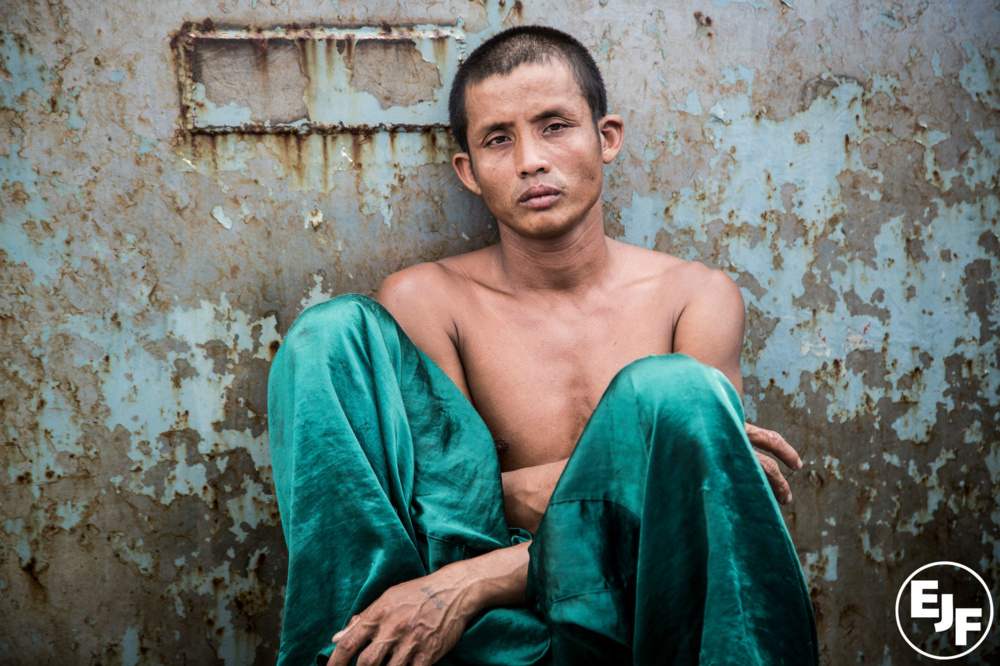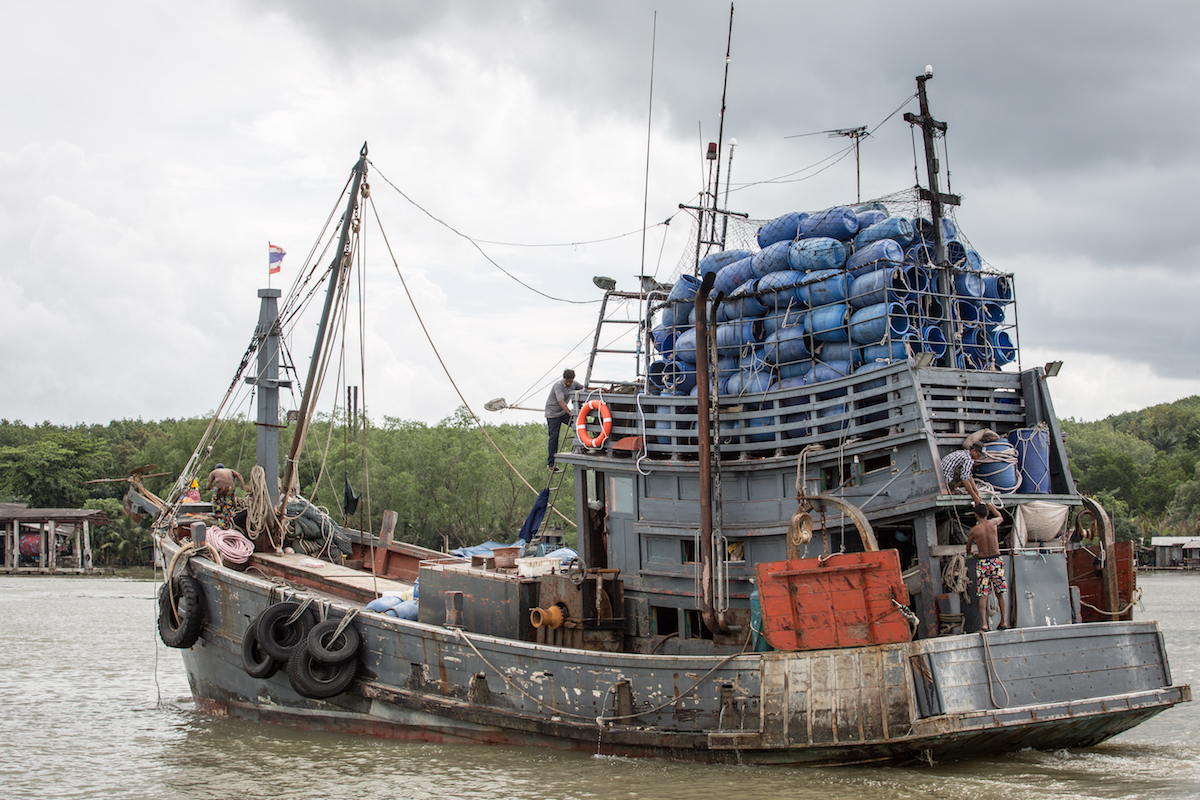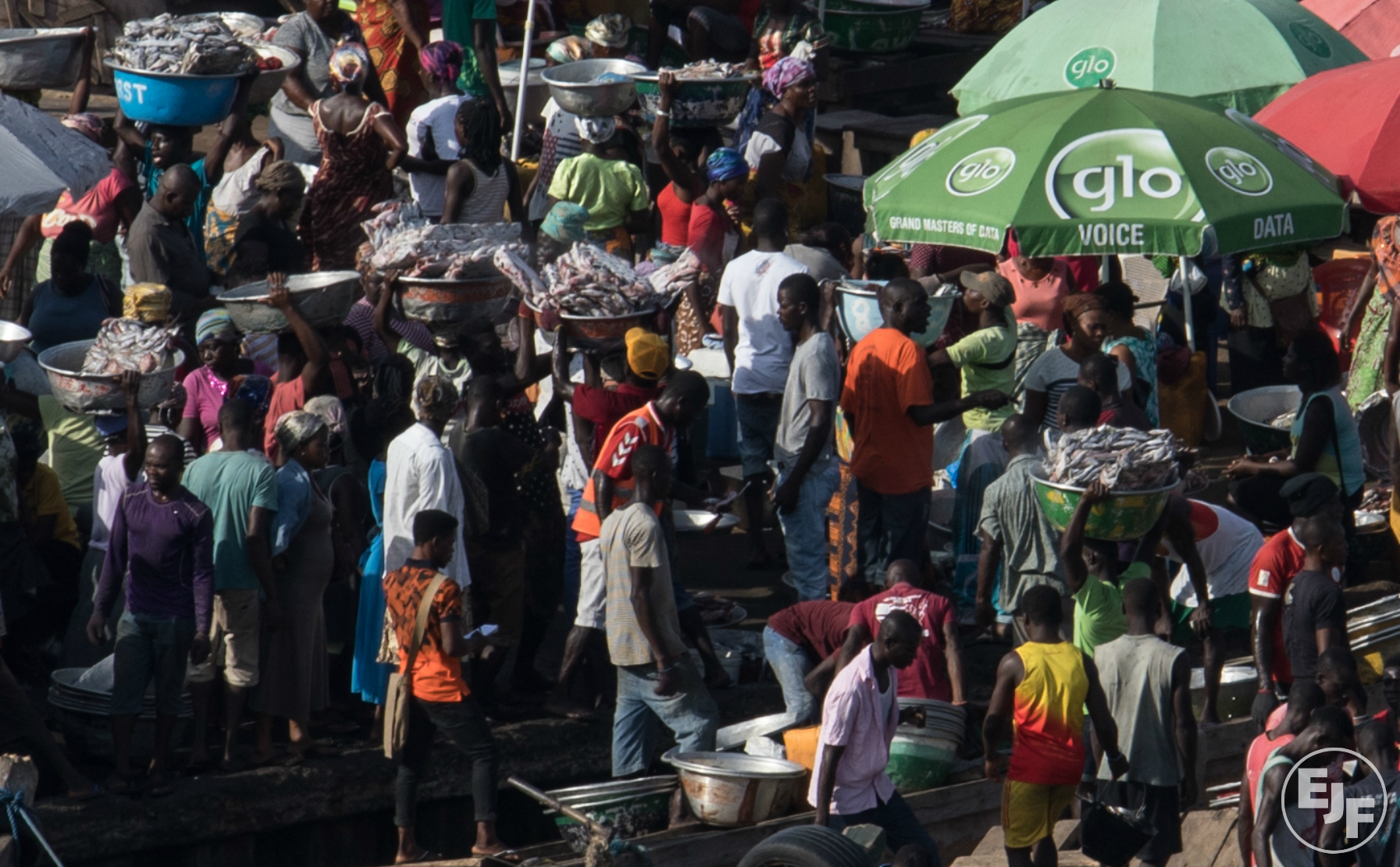
Thailand ratifies convention to tackle forced labour: EJF response
This week Thailand officially ratified the Protocol of 2014 to the Forced Labour Conventionat the International Labour Organization summit in Geneva. The Environmental Justice Foundation (EJF), which has worked to expose incidences of forced labour in the Thai fishing industry since 2013, strongly applauds this move, and the progress the country has made. However, Thailand must also commit to three other conventions concerning working conditions in the fishing industry, the right to organiseand collective bargaining, the NGO stresses.
Thailand’s ratification of the Forced Labour Convention is a crucial step forward, especially for the country’s fishing and seafood processing industries, which have in the past been notorious for labour rights violations and forced labour cases.
In extensive recent investigations carried out by EJF, workers reported brutal physical abuseat the hands of their employers, brokers, or other crewmembers if they did not work hard enough and enforced work for periods of 24 hours or more, often in return for little or no money.
Steve Trent, EJF executive director, says: “Our investigations have shown workers suffering atrocious working and living conditions or having their court cases thrown out for lack of valid evidence of forced labour. Thailand has now driven a transformation of its fisheries, ushering in extensive, much needed and highly valuable reforms. But if it is to succeed in securing legal, sustainable and ethical fisheries, it must see the entire process through by committing to eradicate labour abuses and illegal practices at every turn. As the first country in Asia to ratify this ground-breaking convention, Thailand is setting out its intention to be a leader in the region, it must now consolidate this and bring in the full suite of reforms necessary.”
The Royal Thai Government had previously stated publicly that alongside the Forced Labour Convention it would ratify the Work in Fishing Conventionthis month. This has now been delayed, and EJF urges the government to continue working towards ratification by September this year.
The government has also pledged to ratify two other conventions on collective bargainingand the right to organisefor both national and migrant workers. By ratifying all three key conventions, and ensuring that they are affectively enforced, Thailand would send a credible and powerful message to the international community that the country is firmly committed to eliminating human trafficking, forced labour and other forms of exploitation from its fishing industry.
EJF has worked closely with the Royal Thai Government for several years to tackle illegal practices and human rights abuse in the fishing industry and the organisation remains committed to helping the country to bring about these reforms as quickly as possible.
Notes for the editor:
Watch EJF’s investigative film Thailand’s Seafood Slavesand read the report
- EJF has worked in Thailand since 2013 with initial investigations into the shrimp and trash fish industries. Close collaboration with the Royal Thai Government now encompasses work across several agencies including Department of Fisheries, Command Centre for Combatting Illegal Fishing, Ministry of Labour, Department of Labour Protection and Welfare, and Marine Department.
- Even when cases of human rights abuse make it court, workers still face judicial barriers. In 2017 for example, two high-profile labour cases in Ranong province ended in the defendants being acquitted due to lack of evidence of forced labour or human trafficking. The provincial judges in both cases showed little evidence of complying with internationally accepted indicators of human trafficking and modern slavery. These rulings provided a dangerous precedent for future potential trafficking and forced labour cases.
- Thai seafood exports of 1.4 million tonnes in 2016 were worth $5.8 billion (UN Comtrade).
- Thailand has a fleet of a proximately 11,000 commercial fishing vessels (Department of Fisheries, January 2018).
Steve Trent – EJF’s Executive Director – met with Deputy Prime Minister Prawit Wongsuwan and Deputy Prime Minister Chatchai Sarikulya in March 2018. During the week Steve also met with the Minister of Labour – Police General Adul Saengsingkaew, Minister of Agriculture and Cooperatives – Minister Grisada Boonrach, the Director General of the Department of Fisheries – Dr. Adisorn Promthep, and Deputy Permanent Secretary of Ministry of Foreign Affairs – Mr. Thanee Tongpakdee.
SIGN UP FOR OUR EMAILS AND STAY UP TO DATE WITH EJF

